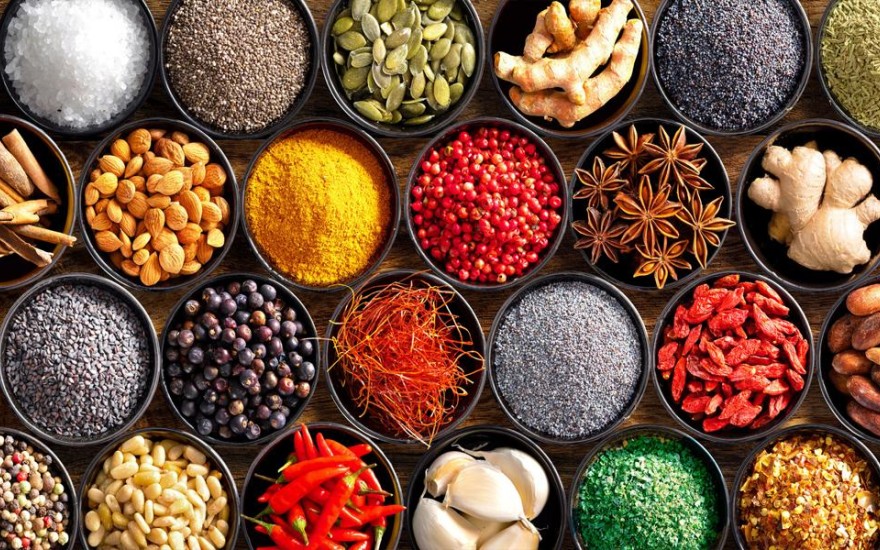How to Use Spices and Herbs: Understanding Flavor Profiles and Tips for Usage
22 Apr 2024
At our premium meat webshop, we are committed to providing our customers with the highest quality meats. We focus not only on freshness and juiciness but also on exceptional flavor. Perfectly seasoned meat is a true culinary experience, and it's an art to create. However, with the right spices and herbs, you can easily conjure up mouthwatering dishes in your own kitchen.
In this article, we will show you how to use spices and herbs to enhance the flavor of your meats. In the first section, we will provide an overview of the flavor profiles of spices and herbs, and in the second section, we will provide tips for using them.
Flavor Profiles of Spices and Herbs:
Spices and herbs offer a wide range of flavors, from spicy to savory, sweet to sour. Spices are typically made from the dried seeds, bark, or roots of plants, while herbs are fresh or dried leaves, flowers, or stems.
Some popular spices and herbs and their flavor profiles:
Bay leaf: Warm, slightly anise-like flavor
Black pepper: Spicy, peppery flavor
Chili pepper: Hot, spicy flavor
Cinnamon: Sweet, warm, cinnamon flavor
Garlic powder: Savory, garlicky flavor
Ginger powder: Warm, citrusy, ginger flavor
Oregano: Warm, minty flavor
Coriander seed: Earthy, citrusy flavor
Cumin: Warm, nutty flavor
Turmeric: Warm, slightly bitter flavor
Nutmeg: Sweet, warm, nutmeg flavor
Cloves: Warm, clove flavor
Herbs:
Basil: Fresh, anise-like flavor
Borage: Spicy, peppery flavor
Chives: Warm, onion-like flavor
Dill: Warm, anise-like flavor
Tarragon: Sweet, anise-like flavor
Dill: Warm, anise-like flavor
Cilantro: Earthy, citrusy flavor
Lovage: Warm, celery-like flavor
Parsley: Fresh, green flavor
Rosemary: Piney, woody flavor
Lettuce: Slightly sweet, slightly bitter flavor
Tarragon: Sweet, anise-like flavor
Oregano: Warm, minty flavor
Spice Combinations for Popular Meats
Spices and herbs are magical ingredients that can transform ordinary dishes into mouthwatering culinary delights. Selecting the right spice combination is crucial for enhancing the flavor of meat and creating a unique taste profile. Here are some suggestions for the most popular meat varieties:
Beef:
Classic Roast Beef: Salt, pepper, garlic powder, onion powder, garlic granules, parsley
Grilled Beef Steaks: Salt, pepper, rosemary, thyme, olive oil
Beef Stew: Salt, pepper, red wine vinegar, bay leaf, thyme, parsley
Beef Burgers: Salt, pepper, garlic powder, onion powder, paprika, chili powder
Beef Stroganoff: Salt, pepper, paprika, parsley, sour cream
Pork:
Roasted Pork Loin: Salt, pepper, cumin, garlic powder, onion powder, marjoram
Grilled Pork Chops: Salt, pepper, rosemary, thyme, olive oil
Pork Stew: Salt, pepper, beer, bay leaf, juniper berries, cumin
Pork Schnitzel: Salt, pepper, paprika, mustard, egg
Pulled Pork: Salt, brown sugar, paprika, garlic powder, onion powder, chili powder
Chicken:
Roasted Chicken: Salt, pepper, paprika, garlic powder, onion powder, thyme
Grilled Chicken Breasts: Salt, pepper, rosemary, thyme, olive oil
Chicken Stew: Salt, pepper, bay leaf, thyme, parsley, cream
Chicken Paprikash: Salt, pepper, paprika, cumin, red paprika, sour cream
Chicken Wings: Salt, pepper, paprika, garlic powder, onion powder, chili powder
Duck and Goose:
Roasted Duck/Goose: Salt, pepper, cumin, marjoram, thyme, orange juice
Confit Duck/Goose: Salt, pepper, garlic, bay leaf, thyme, rosemary
Duck/Goose Liver Terrine: Salt, pepper, rosemary, thyme, port wine
Duck/Goose Sausage: Salt, pepper, cumin, paprika, chili powder, garlic powder
Duck/Goose Salad: Salt, pepper, vinegar, olive oil, mustard, lettuce, walnuts
Tips for Using Spice Combinations:
Start with a small amount and add more to taste. Spices can be intense, so it's always better to start with a little and add more later if needed.
Experiment with different combinations. There are many different spices and herbs that you can use to season meat. Try out new combinations until you find your favorite flavor profile.
Use whole spices and herbs if possible. Whole spices and herbs provide a more intense flavor than ground spices. If using ground spices, freshly grind them for the best flavor.
Toast spices in oil before cooking. Toasting spices helps to release their flavor.
Add spices and herbs at different stages of cooking. You can add spices and herbs to the meat at the beginning of cooking to let the flavors infuse, or you can add them at the end of cooking for a fresher flavor.
Spices and herbs are versatile ingredients that can be used to create a wide range of flavors. With the tips above and the extensive list of spice combinations, you can learn how to use them to enhance the flavor of your meat and take your cooking to the next level.

